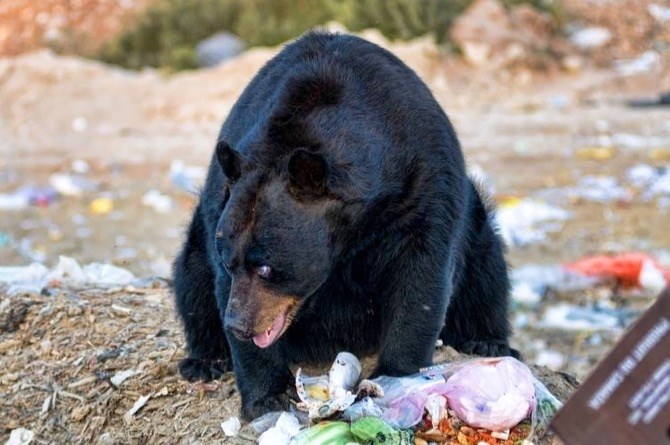
Excessive food purchasing and people staying at home creating waste could cause extra problems for bears coming out of hibernation, the B.C. Conservation Officer Service and the Regional District of Okanagan Similkameen warn.
Image Credit: Shutterstock
March 23, 2020 - 7:30 PM
The days are getting warmer, coaxing bears out of hibernation in the Thompson and Okanagan regions.
With more people staying home and changes in food purchasing due to the COVID-19 pandemic, the B.C. Conservation Service and regional districts are reminding residents to be bear aware as bears wake up and begin seeking food.
The Conservation Officer Service reported in a social media post recently it has already received reports of bear activity, including bears spotted in neighbourhoods.
The service also notes with more people staying at home due to the COVID-19 pandemic, there is more opportunity for garbage and other attractants to pile up, as well as more opportunities to manage them.
“Spring means the Conservation Officer Service is renewing warnings to secure garbage, pet food, birdseed and other attractants around your home,” the service says, calling it one of the best ways to prevent wildlife conflicts from happening in the first place.
Regional District of Okanagan Similkameen Chair Karla Kozakevich says more food waste may be generated due to excessive groceries purchased through the COVID-19 pandemic.
“Household waste and recycling will most certainly grow in proportion and contain a whole smorgasbord of refuse, including diapers and wipes, which bears are especially fond of,” Kozakevich said in a press release issued today, March 23.
With a sense of smell five times better than a dog, bears are well adapted to smell out possible food sources, Kozakevich says.
“Bears will have plenty of natural food sources to choose from when they leave the den. We all need to ensure bears and their cubs can’t capitalize on this potential un-natural food availability. If we don’t, they will become food conditioned and habituated. We know that usually doesn’t end well for the bears and puts our neighbourhoods at risk,” Kozakevich says.
To contact a reporter for this story, email Steve Arstad or call 250-488-3065 or email the editor. You can also submit photos, videos or news tips to tips@infonews.ca and be entered to win a monthly prize draw.
We welcome your comments and opinions on our stories but play nice. We won't censor or delete comments unless they contain off-topic statements or links, unnecessary vulgarity, false facts, spam or obviously fake profiles. If you have any concerns about what you see in comments, email the editor in the link above.
News from © iNFOnews, 2020